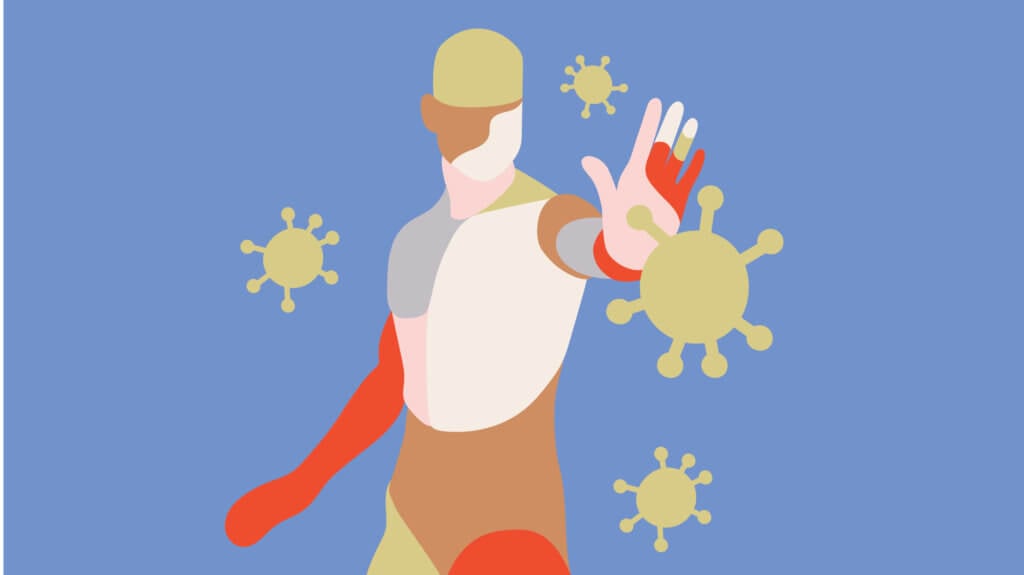Raising Awareness: More Hope for Lymphoma Patients
- Keyboardist Roger O’Donnell, 68, from the legendary British rock band The Cure, has shared that he has been fighting a rare and aggressive type of blood cancer. The London native, who joined the band in 1987 and still tours today, reassures however, that he’s doing “fine” a year after his diagnosis, thanking his “rockstar” doctors and medical team for leading him through.
- When it comes to understanding lymphoma, it’s a type a cancer of the immune system that affects infection-fighting cells called lymphocytes. And there are more than 40 different types of the disease. Hodgkin lymphoma has distinctive, giant cells called Reed-Sternberg cells. The presence of these cells, which can be seen under a microscope, will help your doctor determine which of the two lymphoma types you have (Hodgkin or non-Hodgkin).
- Based on research findings presented in May at the 2024 American Society of Clinical Oncology (ASCO) annual meeting, there is now more hope and less suffering for treating advanced Hodgkin lymphoma with less invasive treatment, which results in fewer side effects.
- When faced with a cancer diagnosis, it’s important to not lose hope. Ask your doctor informed questions to understand your condition, treatment options, and coping strategies. These questions can serve as a starting point for your discussion with your doctor so you can feel empowered as you navigate your cancer journey.
Urging his followers to take action as he now raises awareness about the disease for blood cancer awareness month, O’Donnell said, “If you have the faintest thought you may have symptoms go and get checked out.”
Read More
View this post on Instagram
“I’ve now completed 11 months of treatment under some of the finest specialists in the world and with second opinions and advice from the teams that had developed the drugs I was being given. I had the benefit of the latest sci fi immunotherapy and some drugs that were first used 100 years ago,” the composer continued.
“The last phase of treatment was radiotherapy which also was one of the first treatments developed against cancer. Im fine and the prognosis is amazing, the mad axe murderer knocked on the door and we didn’t answer.”
Don’t Delay Going to the Doctor
“Cancer CAN be beaten but if you are diagnosed early enough you stand a way better chance, so all I have to say is go GET TESTED, if you have the faintest thought you may have symptoms go and get checked out,” O’Donnell pressed. “Lastly if you know someone who is ill or suffering talk to them, every single word helps, believe me I know.”
“I would also like to thank my Drs, rockstars everyone of them, all the nurses and technicians, my friends, family and my partner Mimi, sometimes its harder to be on the other side of this….. ”

As for O’Donnell’s own rock star career, he was inducted into the 2019 Rock and Roll Hall of Fame with The Cure, was also a part of The Psychedelic Furs from 1985-1987, and still leads an active solo career as a recording artist four decades later.
RELATED: Finding Lymphoma Early — Do you Know the Symptoms and Risks?
“Whenever I look back, I really wonder how I did it! The transition from the Furs to the Cure was probably the most frantic,” he said in a 2007 interview with Textura.

“I was on tour with the Furs in the U.S. with a cassette of the latest Cure album and a keyboard that fit in my suitcase — health never seemed to be a problem; there just wasn’t time to get sick and I’ve never missed a show.”
We hope that is still the case as O’Donnell moves forward after a tough year.
What Is Lymphoma?
When it comes to understanding lymphoma, it’s a type a cancer of the immune system that affects infection-fighting cells called lymphocytes. And there are more than 40 different types of the disease.
“Lymphoma is split up into a number of different categories,” Dr. Elise Chong, a medical oncologist at Penn Medicine, previously explained to SurvivorNet.
“The first distinguishing breakpoint, if you will, is non-Hodgkin lymphoma versus Hodgkin lymphoma,” Dr. Chong said, “and those sound like two different categories. But non-Hodgkin lymphoma comprises the majority of lymphoma, and Hodgkin lymphoma is a single specific type of lymphoma.”
Dr. Elise Chong explains why your type of lymphoma matters
Hodgkin lymphoma has distinctive, giant cells called Reed-Sternberg cells. The presence of these cells, which can be seen under a microscope, will help your doctor determine which of the two lymphoma types you have.
There are a few other important differences between non-Hodgkin lymphoma and Hodgkin lymphoma to note. For one thing, non-Hodgkin lymphoma is much more common. And you’re more likely to be diagnosed with it after age 55. People usually develop Hodgkin lymphoma at a younger age.
It should be noted that another difference between these two types of lymphoma is that non-Hodgkin lymphoma is more likely to spread in a random fashion and be found in different groups of lymph nodes in the body, while Hodgkin lymphoma is more likely to grow in a uniform way from one group of lymph nodes directly to another.

These two different types of lymphoma behave, spread and respond to treatment differently, so it’s important for you to know which type you have.
Your doctor will tailor your treatment to the stage of your cancer, as well as other factors, such as how aggressive it is. Chemotherapy is generally part of the treatment at every stage. But in the early stages, radiation may be added, because stage I and II lymphomas tend to respond well to radiation.
Lymphoma Biopsy: What to Expect
Your doctor tells you that you could have lymphoma. Now you need a biopsy to find out for sure. Going in for a test like this can be stressful. The worry hangs over you that you could have cancer. Plus, you’ll have to undergo a procedure that could be somewhat invasive.
The experience you can expect going into a biopsy “depends on the type of biopsy that’s being performed,” Dr. Elise Chong, medical oncologist at Penn Medicine, tells SurvivorNet.
There are a couple different types of biopsy used to diagnose lymphoma:
- Surgical biopsies remove part or all of a lymph node through an incision in the skin
- Needle biopsies remove a smaller amount of tissue through a thin or wider hollow needle
Surgical Biopsy
This is a minor operation. How it’s performed depends on where the lymph node is located. If it’s close to the surface of your skin, you might only need a local anesthetic to numb the area beforehand.
If the lymph node is deeper, you’ll need either general anesthesia, where you’re fully asleep, or conscious sedation, where you’re just unaware of what’s going on. “Usually the patient will either be put to sleep or in a twilight state where you won’t remember anything about the procedure,” Dr. Chong says. “This is done so that no one’s remembering any discomfort associated with the procedure.”
Your surgeon will cut through your skin and remove the lymph node or other section of organ that’s going to be biopsied. The doctor will close your skin back up with skin glue, sutures, or staples, Dr. Chong explains. Finally, the wound is covered with a bandage.
Usually the entire procedure takes just a few hours. Depending on how deep the incision is, you may have to stay overnight at the hospital, or you could be released on the same day, once your body has had time to recover.
If you have general anesthesia, you’ll need someone to drive you home. The doctor should give you instructions on how to care for the incision and keep it clean at home to avoid infection. You may need to return to your doctor about a week later to remove the stitches if they don’t dissolve on their own.
Needle Biopsy: What to Expect
A needle biopsy is a less invasive procedure, and it’s typically done on an outpatient basis. Your doctor will use a needle — either a thin or a thicker tube-like needle — and remove a sample from your lymph node or tumor.
“That’s typically just done with local anesthesia,” Dr. Chong says. “A needle is placed under the skin with numbing medication, which typically feels like pinching and a bit of burning.” Once the needle is in, all you should feel is some pressure as your doctor places the needle into the lymph node. The entire process might not take more than a few minutes.
Waiting for Your Results
Once the procedure is over, the waiting game begins. Your biopsy sample will go out to a laboratory, where a specialist called a pathologist will check it for cancer. Ask your doctor when you can expect to get your results.
The process typically takes a week or two, because diagnosing lymphoma requires special tests. The lab will stain the cells to sort out which type of lymphoma you have. The lab might also do cytogenetic tests looking for specific chromosomal abnormalities. The results of these tests can not only show what type of cancer you have, but may also help your doctor predict your outlook and how your cancer might respond to certain types of chemotherapy drugs. It might also affect the chemotherapy treatment you receive.
More Hope for Treating Lymphoma
New findings presented in June at the 2024 American Society of Clinical Oncology (ASCO) annual meeting, a major annual conference where professionals share their latest research in cancer, has revealed that “less” intensive treatment actually results in more progress when it comes to Hodgkin lymphoma (along with ovarian and esophageal cancers).
Researchers from recent studies on those three types of cancers have discovered that less surgery, less chemotherapy or less radiation can lead to more progress for people diagnosed with either of those cancers, the Associated Press reported in a compilation of research.
The uplifting news comes about 30 years after one study looked into whether high‐dose chemotherapy and autologous bone marrow or stem cell transplantation was better than conventional chemotherapy for those battling metastatic breast cancer. The study found that intensive treatment didn’t work better than the normal amount.
What Does It Mean to Have Advanced-Stage Lymphoma?
Dr. Tatjana Kolevska, medical director for the Kaiser Permanente National Cancer Excellence Program who has no involvement in the new research, told AP news, the question of whether all the treatment used in the past is actually needed “should be asked over and over again.”
Additionally, Dr. William G. Nelson of Johns Hopkins School of Medicine, who was also not involved in the studies, told AP News, “The good news is that cancer treatment is not only becoming more effective, it’s becoming easier to tolerate and associated with less short-term and long-term complications.”
For advanced Hodgkin lymphoma, research funded by Takeda Oncology and presented during the ACSO’s recent conference, looked into two types of chemotherapy regimens for advanced Hodgkin lymphoma.
The findings ultimately revealed the less intensive treatment to be more effective for the blood cancer, as well as resulting in fewer side effects.
“After four years, the less harsh chemo kept the disease in check in 94% of people, compared to 91% of those who had the more intense treatment,” AP News explains.
“The trial included 1,482 people in nine countries — Germany, Austria, Switzerland, the Netherlands, Denmark, Sweden, Norway, Australia and New Zealand.”
If you are experiencing lingering swollen lymph nodes in the neck, armpit or groin, have lost weight and are experiencing night sweats, make sure to log your symptoms and get in right away to see a doctor.
Questions to Ask Your Doctor
When faced with a cancer diagnosis, it’s highly important to ask your doctor informed questions to understand your condition, treatment options, and coping strategies. These questions can serve as a starting point for your discussion with your doctor so you can feel empowered as you navigate your cancer journey.
- What type and stage of cancer do I have, and what does this mean for my prognosis?
- What treatment options are available, and what are the potential benefits and risks?
- How will the proposed treatment plan impact my daily life, including work, family, and social activities?
- Are there any clinical trials or experimental treatments I may be eligible for?
- How can I manage treatment side effects and maintain my overall well-being during treatment?
- How will my cancer diagnosis and treatment affect my emotional health and what support resources are available to help me cope?
Learn more about SurvivorNet's rigorous medical review process.

